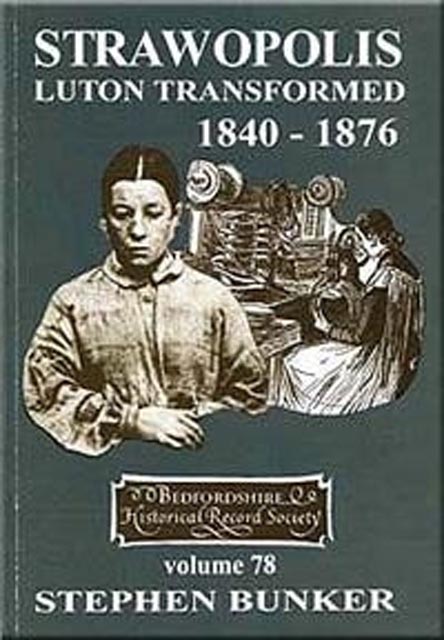Book contents
- Frontmatter
- Dedication
- Contents
- List of Illustrations
- Acknowledgements
- Abbreviations
- Introduction
- Chapter One Hats, Land and Houses
- Chapter Two The Board of Health
- Chapter Three Society: Belief and Behaviour
- Chapter Four Politics, Power and Self-determination
- Epilogue
- Biographical notes
- Notes on place names
- Bibliography
- Sources
- Name of Index
- Subject Index
- Recent Publications
Introduction
Published online by Cambridge University Press: 03 August 2023
- Frontmatter
- Dedication
- Contents
- List of Illustrations
- Acknowledgements
- Abbreviations
- Introduction
- Chapter One Hats, Land and Houses
- Chapter Two The Board of Health
- Chapter Three Society: Belief and Behaviour
- Chapter Four Politics, Power and Self-determination
- Epilogue
- Biographical notes
- Notes on place names
- Bibliography
- Sources
- Name of Index
- Subject Index
- Recent Publications
Summary
Luton is one of a number of towns and cities, mostly located in the south-eastern quarter of England and including Oxford, Slough and Coventry, which experienced rapid economic expansion during the first half of the twentieth century. In fact, it is little exaggeration to claim that in the last two centuries Luton has twice undergone a profound economic and social transformation. The second industrial revolution, accelerating from the Edwardian era onwards, was sustained through the inter-war period when the town became a magnet for migrating workers, many of whom came from the depressed regions of Britain. Dominated by the large Vauxhall car manufacturing plant, Luton became the home of ‘the affluent worker’, a specimen worthy of sociological study. In parliamentary terms it became a barometer seat: since 1918 by and large the party which gained the constituency containing the bulk of the Luton urban area also won the country.
This volume, however, is concerned with the first transformation of industrial Luton during the middle of the nineteenth century. Apart from its staple industry, the hat trade, this has been a relatively neglected period, a possible reason being that in many respects this is a difficult subject for assessment. For a start there still remains insufficient published work on the smaller cities and towns of mid-nineteenth century England which would allow appropriate comparative study. Most effort carried out has been digging along the richer seams presented by London, Manchester, Liverpool, Leeds and Birmingham, with more occasional studies of places such as Newcastle, Bradford, Nottingham or Bristol. For example, during an era distinguished by volunteerism, there would be few spheres of activity more conducive to parochial enterprise and originality than philanthropy. F.K. Prochaska's study of this in The Cambridge Social History, for example, cites 44 post-war titles in its bibliography. Setting aside the ten devoted to London and two on Scotland, there are just three drawn from studies of a defined locality. W.D. Rubinstein's recently published general history of nineteenth century Britain also reflects this imbalance. The second part of the volume is devoted to social and cultural history, citing 97 texts in its bibliography. Seven of these are based upon analyses of specific localities, five of them concentrated within the capital?
- Type
- Chapter
- Information
- StrawopolisLuton Transformed 1840-1876, pp. 1 - 17Publisher: Boydell & BrewerFirst published in: 2023



